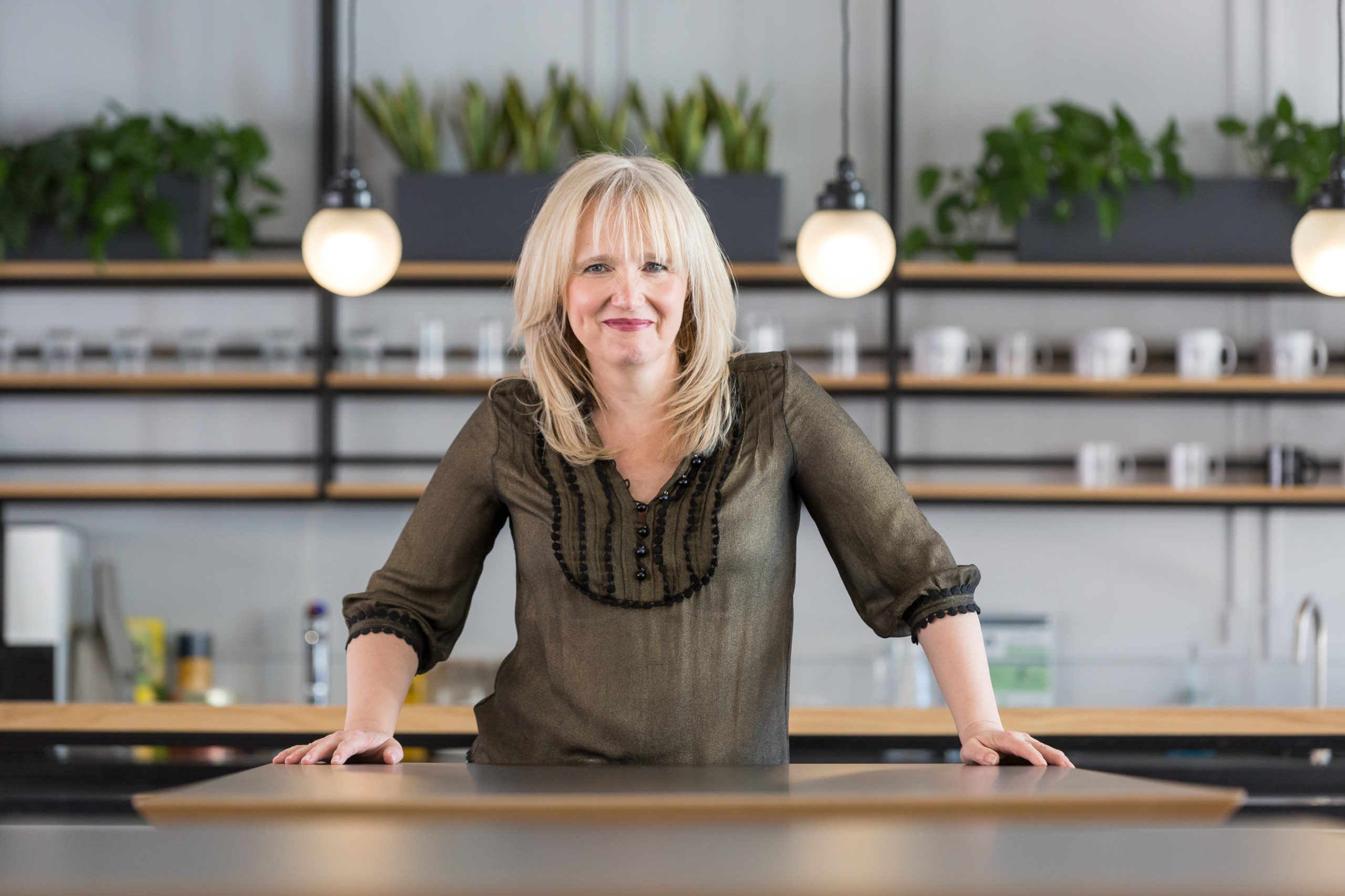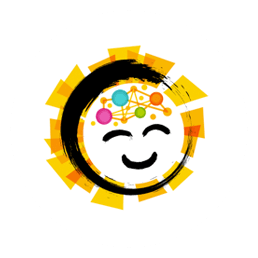
Adrienne Percival • 5 May 2021
“There’s a danger ‘productivity’ could become a dirty word” – meet the tech founder putting business at the heart of employee wellbeing
In 2021, the concept of wellbeing at work correlating to performance and productivity has taken on much greater significance at C-Suite level – albeit not necessarily for HRDs.
But is the upsurge in focus on particularly the mental health of employees becoming a cul-de-sac of endless conversation and little action?
Afterall, business is fundamentally about production and commerce – but even pre-Covid the Lancet claimed lost productivity due to anxiety and depression cost the global economy US$ 1 trillion each year.
And in a report in January 2020, Deloitte estimated poor mental health costs UK employers up to £45 billion a year.
Statistics such as these can often be too much for individuals to take on and Adrienne Percival, founder of award-winning tech company FlourishZone, says ‘wellbeing overwhelm’ is increasingly becoming a barrier to action.
A confusing place to be
She said: “Business and HR leaders are in a difficult situation right now. They are on one hand charged with the wellbeing at work agenda – but also improving productivity almost simultaneously.
“It can feel like a hard one to navigate, which can lead to a reduction in clarity of how to bring these two things together in any progressive way.”
Adrienne, who has been an executive coach for 15 years, said: “There is even a danger that productivity could become a dirty word as it relates to the part of the equation that can be seen to cause stress in the first place. A confusing place to be.
“But as we start economic recovery in earnest, it is important to remember that productive businesses reduce unemployment and poverty – which are major drivers of mental illness and stress.”
Adrienne first became ‘obsessed’ with human behaviour while studying history at Cambridge University, pinpointing times of significant social upheaval like World War II and being amazed at the positive social upturns following this, creating systems such as the NHS.
She said: “Business is now at the forefront of picking up many social problems being caused by the pandemic, catapulting HR into the frontline.
“But though the pandemic has exacerbated the ‘wellbeing crisis’, it’s also bought people and communities together. Reminding us of how resilient and productive we can be when everyone aligns, even in the toughest of circumstances.
“So, the real question to my mind has to be how do we make it as easy as possible for employees to thrive, while still acknowledging the next few years are still going to be a bit of a rough ride?”
Hyper-personalisation is key
This is where humans and technology meet, according to Adrienne.
Adrienne, who is based in Bath where FlourishZone has its HQ, said: “I realised some time ago that people broadly face two key challenges when it comes to trying to improve their performance.
“First, it’s difficult for them to diagnose their own development needs and, secondly, to find the right support at the right time and price.
“The other issue at play is that you cannot totally separate ‘professional’ and ‘personal’ experiences. They are intrinsically linked and impact behaviour, motivations and performance in and out of work.
“If an employee is stressed because they are going through a particularly difficult divorce, they aren’t going to suddenly improve their time management skills by doing an online course about how to manage their workload.”
Adrienne thinks this attitude often results in employees ‘cobbling together’ their own solution – perhaps downloading a mindfulness app to help them with anxiety and then accessing their workplaces negotiation skills course to help them manage a difficult colleague.
Hyper-personalisation, she claims, is the goal HR needs to consider at the heart of all its ‘wellbeing’ activities.
She said: “Wellbeing, productivity and resilience are all threatened at the same time on a global scale and every one of us experiences a different mix of these factors. They also change over time, creating a tsunami of issues being faced at individual and organisational level.
“Yet, despite the fact that the world has at least 17 million experts in this field very few of the solutions are truly interconnected or accessible. It was this dilemma that produced the catalyst for the launch of FlourishZone.”
Significant business and societal impact
Launched in 2016, FlourishZone was backed by a £1million Innovate UK award among other significant investors in 2018 and developed a system designed to join these dots. Working on the premise it is too expensive and complex to get the right expertise to the right person at the right time.
The design team at FlourishZone have now created an app-based, ‘deep tech’ platform that helps individuals access the right support needed for them at the right time based on their need – as it happens.
Adrienne said: “We’ve found the combination of Artificial Intelligence and humans, known as Augmented Intelligence, works.”
The win here is that the tech can be hyper-personalised to the needs of the employee but provides the human touch that people desire thanks to the fact the solutions themselves are built by experts in their own field.
At the heart of the platform an AI solution engine, built on a unique, scientific AI framework with 1500 factors and 500k connections, it continuously analyses all users and groups to identify and achieve their biggest wins.
Adrienne said “There is also potential for significant business and societal impact. While keeping individuals’ information completely confidential, collective user data can be powerful in helping employers identify what type of things their employees struggle with the most and change in real time.
“Imagine this at scale, with a local NHS authority for example using the data to decide where budget is best spent in order to help people’s wellbeing.”
Fundamentally, Adrienne says that having both technology and people in one place releases HR and businesses from major implementation programmes and enables and empowers workers to be more productive on their own terms.
She said: “The pandemic unquestionably marks a turning point. The financial toll of poor mental health is significantly higher on the list of business leader’s priorities as we try and rebuild devastated economies.
“So, this also means that wellbeing solutions need to have businesses and their leaders at the centre of the equation and make an impact to the system as a whole, otherwise we risk the productivity crisis going nowhere fast and taking us all along with it.”
This article has been used with permission of The HR World where it was first published.
Written by
Adrienne Percival

Flourish Zone Ltd ®
Registered company 4997248
1 Widcombe Crescent
Bath BA2 6AH Map
hello@flourish.zone
App terms and conditions - Privacy policy
This website uses cookies that help the website to function and also track how you interact with our website. By clicking “Allow All” you agree to the storing of cookies on your device.
